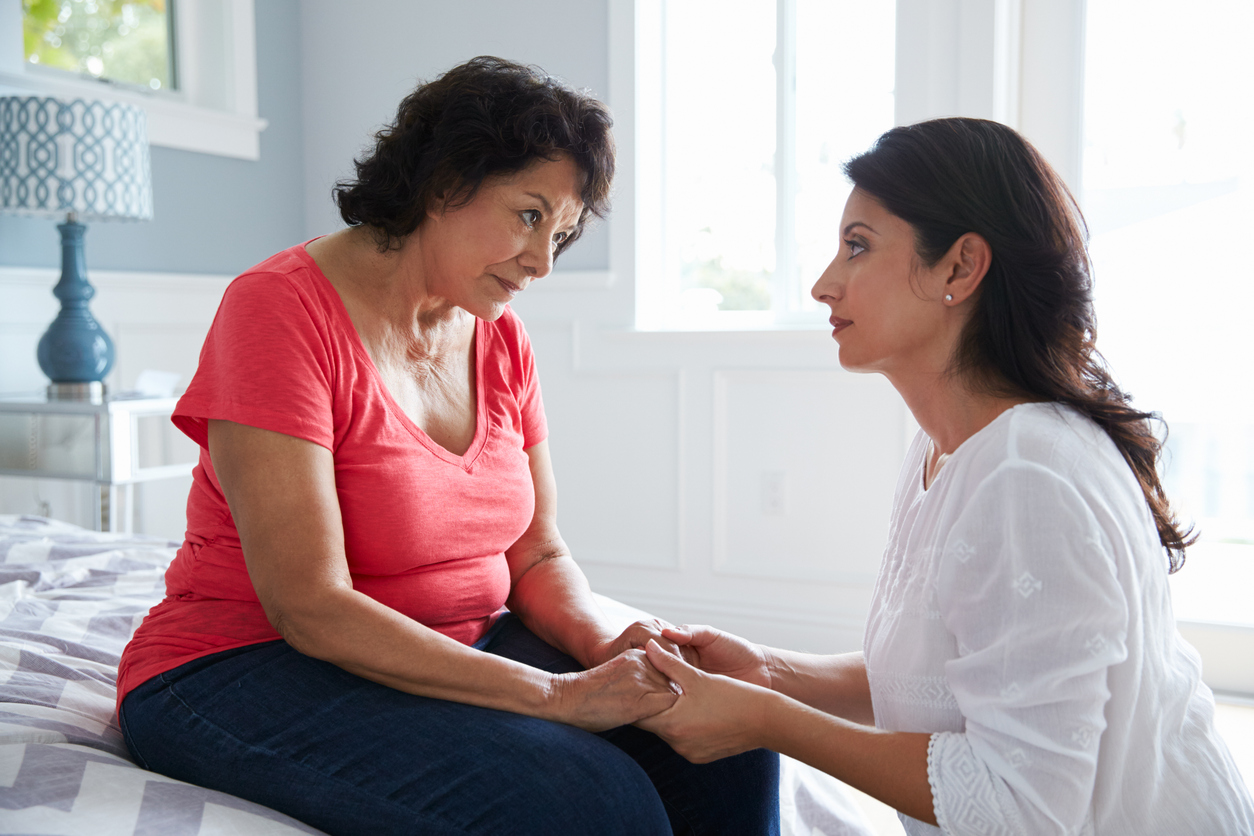As people age, they often face unique challenges that can contribute to increased anxiety. These challenges include health concerns, loss of independence, changes in cognitive abilities, social isolation, and bereavement. Anxiety in seniors can manifest as restlessness, excessive worry, irritability, and difficulty sleeping, which may impact their overall well-being. Fortunately, there are various effective strategies to help older adults manage and reduce anxiety. Here’s a guide to help seniors alleviate anxiety and improve their quality of life.
1. Encourage Open Communication
One of the most crucial steps to help reduce anxiety for seniors is to foster an environment where they feel comfortable expressing their feelings. Many older adults may hesitate to talk about their worries due to pride, fear of burdening others, or a generational stigma surrounding mental health.
- How to help: Actively listen and engage in compassionate conversations. Encourage them to share their concerns, and validate their feelings without judgment.
- Professional support: If they are open to it, suggest therapy or counseling sessions with a mental health professional. Cognitive Behavioral Therapy (CBT) is especially effective in treating anxiety in older adults.
2. Promote Physical Activity
Physical activity has proven benefits for mental health, as it helps to reduce stress hormones like cortisol and releases endorphins, which promote a sense of well-being. Even mild physical activity can make a significant difference for seniors in managing anxiety.
- Types of exercises: Low-impact activities like walking, swimming, or yoga are ideal for seniors. Chair exercises or stretching can also be effective for those with mobility limitations.
- Consistency: Aim for at least 30 minutes of physical activity a few times a week. It can be broken into smaller intervals if needed to accommodate energy levels.
3. Establish a Routine
A structured routine can provide seniors with a sense of predictability and control, which helps reduce anxiety caused by uncertainty or fear of the unknown. Having regular mealtimes, sleep schedules, and daily activities fosters stability.
- Daily planning: Create a simple schedule that includes time for relaxation, hobbies, socialization, and self-care.
- Flexibility: While routine is important, ensure there is some flexibility to avoid creating additional stress if plans change.
4. Mindfulness and Relaxation Techniques
Mindfulness exercises and relaxation techniques are powerful tools in calming an anxious mind. Seniors who practice these regularly can experience a decrease in overall stress and anxiety levels.
- Breathing exercises: Teach seniors deep breathing or belly breathing techniques to calm the nervous system. Simple exercises like inhaling for four counts, holding the breath, and exhaling slowly can make a difference.
- Meditation and guided imagery: These practices help redirect focus from anxious thoughts to the present moment or a calming visualization.
- Apps and resources: Consider using free resources like YouTube meditation guides or apps like Calm and Headspace, which have special features for seniors.
5. Support Social Engagement
Social isolation is a common issue among older adults and can significantly contribute to anxiety. Encouraging social interaction helps build emotional support networks and reduces feelings of loneliness.
- In-person activities: Senior centers, local clubs, or community activities offer opportunities for social interaction. Engaging in hobbies like knitting groups, book clubs, or art classes can also be rewarding.
- Technology: For seniors with mobility limitations, video calls with family and friends, or online communities, can help them stay connected. Introducing them to easy-to-use technology can foster these interactions.
6. Ensure Proper Sleep Hygiene
Poor sleep quality is often linked to anxiety and can worsen symptoms in older adults. Ensuring that seniors get sufficient, restful sleep is critical to their mental health.
- Bedtime routine: Encourage a consistent bedtime routine that includes relaxing activities such as reading or listening to calming music.
- Sleep environment: Ensure their sleeping space is quiet, comfortable, and free from distractions, with appropriate lighting and temperature adjustments.
- Limit stimulants: Caffeine, alcohol, or screen time before bed can interfere with sleep. Encourage limiting these in the evening.
7. Encourage a Balanced Diet
Nutrition plays an essential role in mental health. A healthy, balanced diet can help regulate mood and energy levels, which in turn can alleviate anxiety.
- Nutrient-dense foods: Encourage consumption of foods rich in omega-3 fatty acids, antioxidants, and vitamins, which support brain health (e.g., leafy greens, nuts, and fish).
- Limit sugar and processed foods: Highly processed or sugary foods can lead to blood sugar spikes and crashes, potentially exacerbating anxiety symptoms.
- Hydration: Dehydration can contribute to irritability and fatigue, so make sure seniors are drinking enough water throughout the day.
8. Manage Medical Conditions
For many seniors, anxiety may be linked to existing medical conditions such as chronic pain, heart disease, or neurological disorders. Addressing these health issues can help manage anxiety.
- Regular checkups: Ensure that they attend medical appointments and keep up with treatments for any underlying health conditions.
- Medications: Some medications for other health problems can contribute to anxiety. Consult a healthcare provider to review prescriptions and explore adjustments if necessary.
9. Limit Exposure to Negative News
Many seniors feel overwhelmed by constant exposure to news, especially with distressing world events. While staying informed is important, excessive news consumption can increase anxiety levels.
- Moderation: Encourage them to limit news intake to certain times of the day and to avoid watching before bed.
- Positive content: Introduce them to uplifting and enjoyable media, such as light TV shows, movies, or books that provide comfort and relaxation.
10. Consider Pet Therapy
Animals can provide tremendous emotional support for seniors, offering companionship, love, and a sense of purpose. Studies show that spending time with pets can reduce anxiety, lower blood pressure, and improve mood.
- Adopt or foster pets: If appropriate, consider adopting or fostering a pet like a dog or cat that can offer companionship.
- Therapy animals: Even regular visits from therapy animals can brighten a senior’s day and provide stress relief.
Conclusion
Helping seniors reduce anxiety requires a combination of emotional, physical, and social support. It’s important to approach their mental health holistically, considering their specific needs, health conditions, and preferences. Through regular communication, lifestyle adjustments, and supportive interventions, seniors can manage anxiety more effectively, leading to a happier, more fulfilling life.
FirstLantic Healthcare has been serving the South Florida community since 2000. If you or someone you know needs home healthcare services in South Florida, FirstLantic can help. We are locally owned and operated, providing our patients with the best home care services in Fort Lauderdale (Broward County), Delray Beach (Palm Beach County) and Miami (Miami-Dade) since 2000. We have also been named Top Workplaces by the Sun Sentinel for 8 years in a row. Click here to contact us.
To read more of our blogs, click here.
 AVAILABLE 24 HOURS A DAY/7 DAYS A WEEK
AVAILABLE 24 HOURS A DAY/7 DAYS A WEEK Careers
Careers




